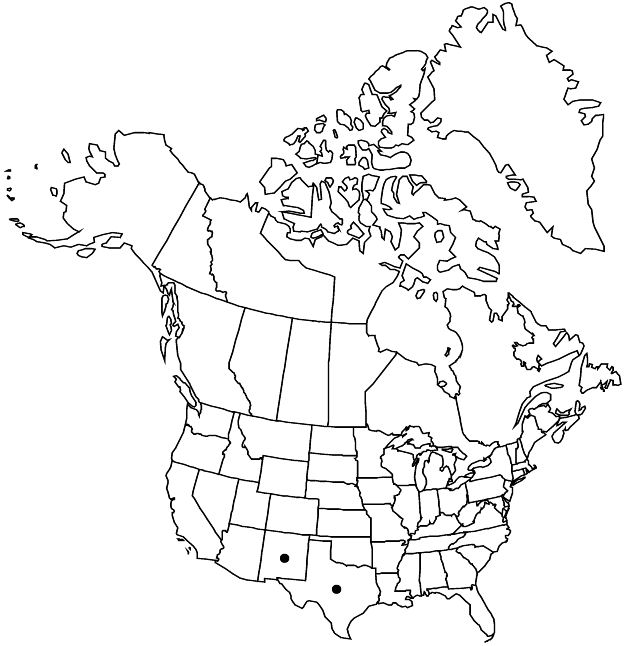Difference between revisions of "Sicyos glaber"
Bull. Torrey Bot. Club 25: 310. 1898.
FNA>Volume Importer |
FNA>Volume Importer |
(No difference)
| |
Revision as of 22:44, 16 December 2019
Stems sparsely villous with flattened hairs mixed with glandular-puberulent vestiture, becoming sparsely hirsutulous to glabrous. Leaves: petiole 1–3(–4.5) cm; blade pentagonal-angulate to reniform-angulate or shallowly 5-angulate, sinuses 1/4–1/3 to base, (3–)4–7 × 5–9 cm, terminal lobe deltate-acuminate, base concave to semicircular, margins evenly subfoliaceous-apiculate, ciliate, surfaces hirsute-hispidulous; proximal pair of lateral veins closely parallel to slightly divergent from edge of basal sinus. Inflorescences: staminate 6–22-flowered, peduncle plus floral axis 15–100(–140) mm; pistillate 4–10-flowered, peduncle 5–8 mm. Flowers: staminate: corolla greenish yellow to yellow, 2–4 mm, stamens slightly exserted; pistillate: sepals not foliaceous, mostly narrowly triangular, 0.5–1.5 mm, corolla 2–3 mm including tube; stigmas 2-lobed. Pepos ovoid, 4–6 mm, not echinate, glabrous or sparsely villosulous.
Phenology: Flowering Aug–Sep.
Habitat: Canyon bottoms, open slopes, talus, dry drainages, sycamore, juniper-mountain mahogany woodlands, chaparral
Elevation: 1800–2400 m
Discussion
The distribution of Sicyos glaber in the United States suggests that it also occurs at least in Chihuahua, Mexico, but apparently it has not been documented from there.
Selected References
None.
